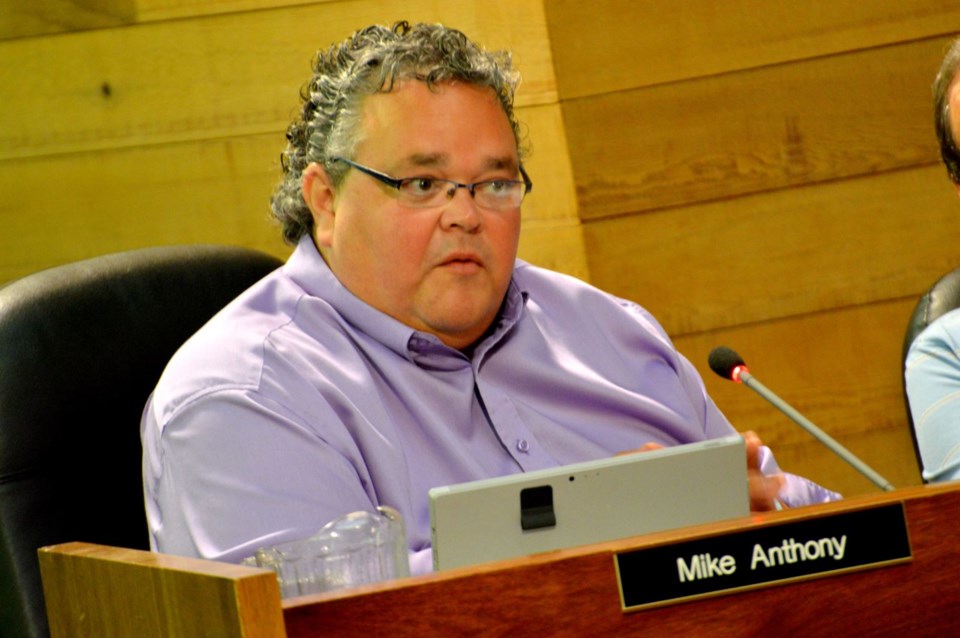If City Councillor Mike Anthony had it his way, there would be no guessing before you get to the gas pump.
Anthony moved a successful motion at Monday night’s council meeting requesting the Ontario Government to investigate the benefits of a province-wide regulation in gas price ranges, so you would know exactly how much you would be paying at the pump and when the prices would be changing.
The idea would be to give a provincially-appointed power the ability to impose weekly ceiling prices on gasoline in an attempt to stabilize some of the sticker shock.
Prince Edward Island, Nova Scotia, New Brunswick, Newfoundland and Labrador and Quebec already use a system that sets a maximum price and a scheduled change, giving customers an idea of what to expect to pay at the pump from week-to-week.
“In general, I would not be a big fan of regulation or regulating businesses, but in the case of gasoline I can make an exception; in the case involving the frustration of so many of our local motorists, I can make an exception,” said Anthony. “[This] could give us some stability and less of the up-and-down shocks that we see.”
This isn’t the first time Anthony has tried to nudge the province into looking at regulated prices. Back in October of 2005, he successfully put forward a similar motion in his second term, when P.E.I. was the only province that had adopted the idea.
The latest request will also be sent to neighbouring municipalities for review and supporting motions, as well as the Federation of Northern Ontario Municipalities (FONOM) and Association of Municipalities in Ontario (AMO).
"People in North Bay are tired of getting gouged at the pumps, which they often feel they are," said Anthony. "I'm not worried about being the first or the last; what I'm worried about is whether other cities are looking at it so we can get it on the radar."
Most provinces rely on market forces to dictate their prices. The Government of Canada has no jurisdiction over retail fuel prices, but provinces do have the regulatory authority under the Canadian Constitution, which some have chosen to take advantage of.
In P.E.I., for example, the Island Regulatory and Appeals Commission decide when and how often prices change, as well as the minimum and maximum difference between the wholesale and retail price. Quebec, on the other hand, determines minimum retail margin for gas retailers to cover their operating costs.
However, Natural Resources Canada state that “most evidence suggests that eliminating competition through regulation, while making prices more stable, does not lead to lower fuel prices for consumers.”
Coun. Derek Shogren was the only one to vote against the idea because he thinks their efforts could have a greater impact elsewhere.
“To try and regulate the price of a world commodity I think is beyond our scope,” said Shogren. “We could regulate a lot of things: let’s regulate the one-third of taxes that go into the cost of a litre of gasoline.
“I’m as frustrated with the gas prices as anyone else is and I think we need to keep up the pressure, but I don’t think regulating the price and having the government set that is our saviour,” he added.
Last October, Anthony and the city were denied their request for an investigation into the high prices around town because a preliminary investigation did not provide reason to believe that the gasoline prices in North Bay are the repercussion of anti-competitive conduct.
Just a few weeks ago, the Competition Bureau explained to BayToday that high or identical prices are not in and of themselves evidence of an illegal agreement and that gas prices in an area are influenced by local supply and demand, differences in taxes, marketing, distribution and transportation costs, and the presence of more aggressive price competitors in the local market.
“I don’t expect a simple motion just to be a silver bullet and solve our gasoline price frustration here in North Bay,” said Anthony, “but from folks I spoke to in the Maritimes this past summer, they see much less volatility or sudden shock changes.”
Other Northern communities are rallying behind the cause too, with Kirkland Lake's City Council recently supporting a similar motion to Anthony’s.
Timmins-James Bay MP Charlie Angus has also written to the Competition Bureau requesting them to review the current state of fuel costs in the North and determine whether or not prices are being kept artificially inflated.
“We know that when a price of a barrel of crude rises on international markets, the price of gas in the pumps jumps immediately,” he wrote recently. “But, if the price of a barrel of crude drops on international markets, the price of gas at the pump in Northern Ontario still remains high."
Anthony, too, feels the discrepancy between Northern and Southern Ontario should be addressed.
“I cannot imagine that if we had some form of province-wide regulation that the more populous, vote-rich areas would see the kind of pricing that we’ve seen,” Anthony concluded on Monday. “I suspect that it would be the opposite and we would see some lower prices like they’ve seen.”



